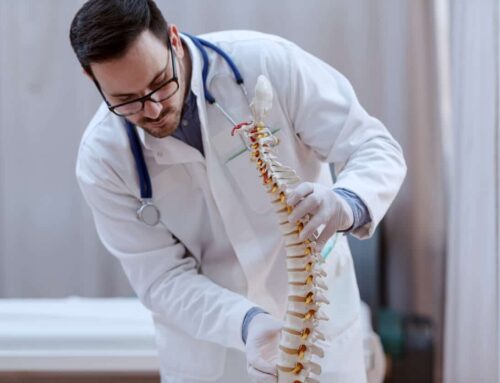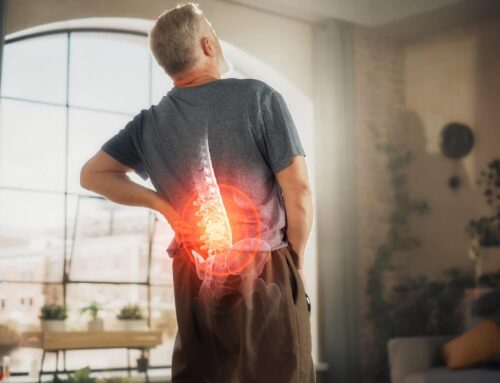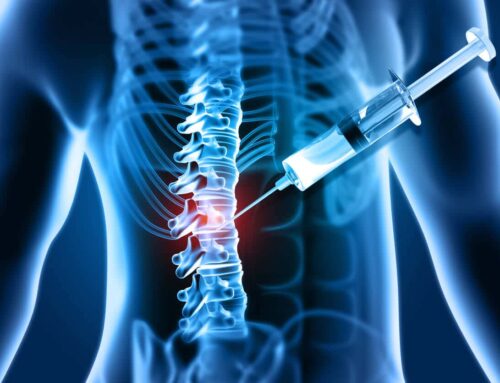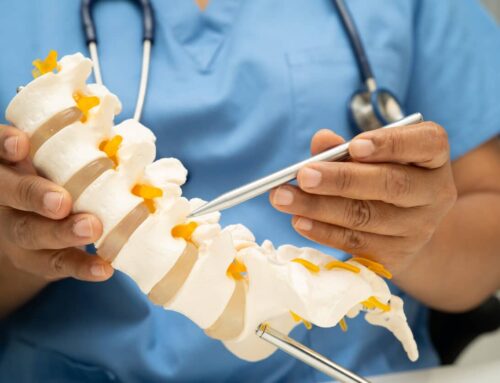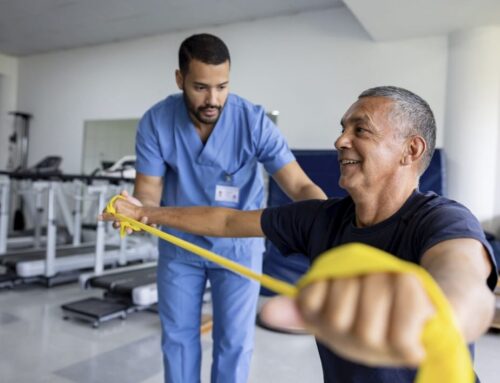Is cervical radiculopathy getting on your nerves?
It’s a pain unlike any other, radiating along the entire axon terminal of the nerve. Have you ever felt this? It’s likely, being that about 85 out of every 100,000 adults in the US are affected by a pinched nerve. Though people of any age can experience this, it is most common in those 50 years of age and older because of arthritis and degeneration of the spine and other areas of the body.
Nerves extend from the spinal cord and brain to send important messages to other areas of your body. If there is compression of this nerve (pinching) the body will send signals like this shooting pain that comes with it. Damage from a pinched nerve can come with temporary and even long-lasting difficulties and irreversible damage. This is why it is important to know a few things about pinched nerves, especially if you or a loved one have been experiencing what you think is a pinched nerve.
What is cervical radiculopathy?
You guessed it – cervical radiculopathy is a doctor’s way of saying “pinched nerve.” This occurs when the neck or spine is compressed or pinched where it branches out from the spine and spinal cord. Numbness and pain are associated with this condition. The following are common places for pinched nerves to affect the body:
- Wrist and hand – usually called “carpal tunnel syndrome”
- Arm and elbow – caused by compression of the ulnar nerve (you feel this nerve when you hit your “funny bone”).
- Back and upper chest – compression of thoracic and lumbar nerves
- Neck and shoulders – cervical nerves compression
What are the symptoms of a pinched nerve?
While the pain is a definite negative symptom of cervical radiculopathy, there are other symptoms one should look out for. Cervical nerve roots are comprised of both motor and sensory nerve fibers. Some symptoms could involve motor movement or sensory function (or both).
Feelings of numbness or tingling electrical sensations can happen, along with reduced sensation on the skin. Weakness or diminished coordination in one or more muscle groups can also occur. Changing the body’s involuntary responses to stimuli (touch, temp, etc.) can also happen.
What are the causes?
Common routes to this problem are inclusive of again, degenerative changes. It’s normal to have some changes to the discs in your spine by middle age. However, some of these changes can cause pressure on your nerve roots, leading to pinched nerves. Cervical foraminal stenosis is somewhat an example of how it happens when the openings in our vertebrae are narrowed, causing them to pinch.
Our nerves are most vulnerable in places like these, narrow areas to which the nerves travel through. Nerve compression happens when the nerve is pushed between your bone, tendons or ligaments. Inflammation can even cause pressure on a nerve root, sending excitatory signals to the spine. This can cause pain to radiate from the neck into the shoulder or arm even.
Sometimes we tend to move in repetitive movements, whether it be with our jobs or the way we sleep. Over time, this can cause pressures that lead to the same issue. Other causes for those younger who have this happen can usually be linked to an injury. One type can be events leading to bulging or herniated discs. If nerve compression lasts long enough, it breaks down the protective layer and insulation around the nerve. Fluid will then build up and eventually cause swelling, even more pressure and scarring. These all interfere with the nerve’s ability to function properly.
Some of the most common symptoms include:
- Weakness with certain activities
- “Pins and needles” or a burning/ tingling sensation
- Numbness
- Radiating pain (sciatica) or radial pain
- Pain in the lower back, neck or area where the compression is present
- Feeling of having hand or foot “fall asleep”
How is it diagnosed?
Certain risk factors can increase the risk of developing cervical radiculopathy. Your risk may be greater if:
- Caucasian descent
- Smoke
- Have had prior pinched nerves
- Lift heavy objects
- Participate in sports such as diving and golf
- Driving heavy equipment or equipment that vibrates and shakes
To make a definitive diagnosis, your doctor will want you to describe all of your symptoms and review your previous medical history. A physical exam will be conducted to check your neck, shoulders, arms and hands for issues with reflexes and sensation. Imaging techniques may also be taken into measure such as:
- CT scan – to get detailed pictures of the spine
- Electromyogram – to see how your muscles work when contracted and at rest
- MRI – to check for soft tissue or nerve root damage
- X-rays – to check for narrowing of the vertebral nerve openings or disc injury
Treatment options for a pinched nerve
Some are lucky, and their symptoms of cervical radiculopathy resolve over time without any medical interventions. But it is always a good idea to get evaluated by your doctor as soon as you begin to experience symptoms, though, to ensure the best outcome in healing. If you do require medical treatment intervention your doctor will likely start with non-surgical modes of treatments such as:
- Medications – corticosteroids (strong anti-inflammatory drugs), pain medication (ibuprofen, naproxen etc.).
- Steroid injections – into the dura membrane surrounding the spinal cord (cortisol shots).
- Physical therapy – may include cervical traction and mobilization through exercise and other modalities to reduce pain and extend the range of motion in affected areas.
Treatment for a pinched nerve in Raleigh, Cary, Morrisville and Holly Springs
The information in this article and being in tune with your body gives us a good idea as to what it might feel like to have cervical radiculopathy or a pinched nerve. If you or a loved one are suffering from back pain or any of the symptoms discussed above, please reach out to your orthopaedic spine expert as soon as possible. You don’t deserve that kind of pressure!
Cary Orthopaedics Spine Center is the Triangle’s only comprehensive orthopaedic spine practice – with expert specialists all under one roof. Our spine center physiatrists help patients reduce back pain and restore function with non-invasive treatments. They communicate closely with our skilled surgeons who perform minimally invasive surgeries and complex surgeries, when needed. And our spine-specific physical therapists contribute their expertise in recovery and rehabilitation. Rounding out our comprehensive capabilities, Cary Orthopaedics Spine Center also offers advanced diagnostics to effectively diagnose your condition.
Make an appointment today to help rid yourself of back pain and get back to the things you love.


